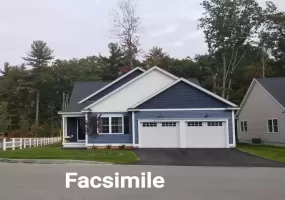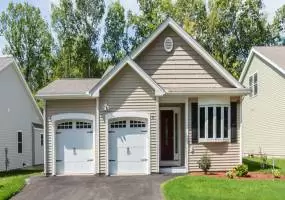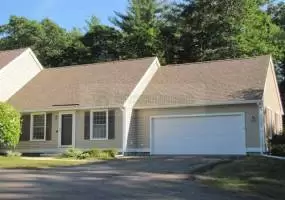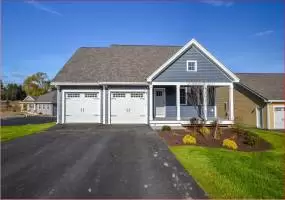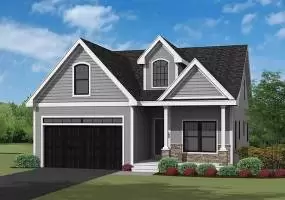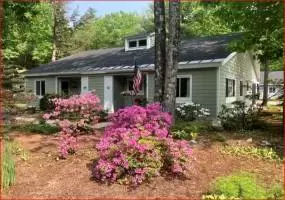By reading the “Assessing Personal Needs and Preferences” page
Readers can expect to gain a comprehensive understanding of the factors they should consider when evaluating their personal needs and preferences for senior housing. The page provides practical guidance, insights, and considerations to help readers make informed decisions that align with their individual requirements and improve their overall quality of life in a senior housing setting.
When it comes to choosing senior housing, understanding your personal needs and preferences is crucial. This section will guide you in discovering what you truly need and help you assess your personal preferences for senior housing. By gaining this understanding, you can find the perfect housing option that aligns with your individual requirements and enhances your overall well-being.
Understanding Your Needs and Preferences:
To find the ideal senior housing, it’s important to have a clear understanding of your needs and preferences. By assessing these factors, you can make informed decisions that lead to a comfortable and fulfilling living environment. This section will help you explore the key aspects to consider when assessing your needs and preferences for senior housing.
Assessing Personal Preferences:
Your personal preferences play a significant role in determining the type of senior housing that will suit you best. By evaluating your preferences, you can ensure that your chosen housing option aligns with your desired lifestyle and provides the amenities and services that are important to you. This section will provide guidance on assessing personal preferences, empowering you to make choices that enhance your quality of life.
Finding the Perfect Fit:
Finding the perfect senior housing option is all about matching your needs and preferences with the available choices. By understanding what you truly need and assessing your personal preferences, you can narrow down the options and focus on housing communities that meet your specific criteria. This section will provide practical advice and insights to help you in your search for the perfect fit.
Conclusion:
Understanding your needs and preferences is a vital step in finding the perfect senior housing for you. By delving into what you truly need and assessing your personal preferences, you can make informed decisions that lead to a housing solution that enhances your overall well-being. Take the time to explore your needs and preferences, and use the information provided in this section as a foundation for your search. The perfect senior housing option that meets your individual requirements is waiting for you.
Section 1: Identifying Personal Needs
In this section, we will delve into the process of identifying your personal needs when considering senior housing. By thoroughly understanding these needs, you can make informed decisions that lead to a housing solution that caters to your specific requirements and enhances your overall well-being. We will discuss various aspects to consider, including healthcare needs, mobility, assistance requirements, and daily living activities. Additionally, we will provide helpful tips for evaluating your current health conditions, managing medications, and addressing any specialized care needs you may have. Finally, we will emphasize the importance of considering any specific dietary requirements or allergies when exploring senior housing options.
Prioritizing Your Well-being: Assessing Healthcare Needs for Senior Housing
- Prioritizing Your Well-being: Assessing Healthcare Needs for Senior Housing
- Nurturing Your Health: Evaluating Healthcare Requirements for Senior Living
- Prioritizing Your Well-being: Assessing Healthcare Needs for Senior Housing Introduction: In this section, we will focus on the importance of prioritizing your well-being and assessing your healthcare needs when considering senior housing options. Understanding your healthcare requirements is crucial to ensure that you receive the necessary support and services in your senior living journey. By evaluating your healthcare needs, you can make informed decisions that promote a healthy and fulfilling life in a senior housing community.Prioritizing Your Well-being: Assessing Healthcare Needs for Senior Housing: When it comes to senior housing, your health and well-being are of utmost importance. By assessing your healthcare needs, you can ensure that the chosen senior housing option can meet your specific requirements effectively. It involves evaluating various aspects such as:
- Understanding Your Health: Assessing Healthcare Requirements for Senior Housing
- Assessing your overall health condition, including chronic illnesses or medical conditions
- Determining the level of healthcare support and services you may require
- Promoting Well-being: Evaluating Your Health Needs in Senior Living
- Considering any specialized care needs or assistance with daily living activities
- Evaluating the importance of medication management and coordination of healthcare services
Nurturing Your Health:
- Evaluating Healthcare Requirements for Senior Living: Your health is a valuable asset, and nurturing it is essential in senior living. By evaluating your healthcare requirements, you can ensure that your chosen senior housing option can provide the necessary support to meet your health needs. It involves considering factors such as:
- Medication Management: Assessing Your Needs for Proper Medication Management
- Evaluating your medication regimen and ensuring proper administration and supervision
- Assessing the availability of medication management services within the senior housing community
- Assistance and Daily Living Activities: Considering Your Healthcare Requirements in Senior Housing
- Identifying any assistance requirements for activities of daily living, such as bathing, dressing, or mobility
- Assessing the level of support needed and the availability of care services within the senior housing community
Conclusion: By prioritizing your well-being and assessing your healthcare needs, you can make informed decisions when considering senior housing options. Understanding your overall health condition, evaluating medication management requirements, and considering assistance and daily living activities will help you find a senior housing option that can provide the necessary support and promote a healthy and fulfilling lifestyle. Use the information provided in this section as a guide to assess your healthcare requirements and make informed decisions about senior housing.
Your healthcare needs are of utmost importance when it comes to choosing the right senior housing option. We will discuss the importance of prioritizing your well-being and guide you through evaluating your healthcare needs. This includes assessing any chronic conditions, understanding medication management, and determining if you require specialized care or medical assistance.
Evaluating Mobility and Accessibility: Moving with Ease in Senior Housing:
- Moving with Ease: Assessing Mobility and Accessibility for Senior Housing
- Thriving in Your Everyday: Evaluating Mobility Requirements for Senior Living
In this section, we will discuss the importance of evaluating mobility and accessibility when considering senior housing options. Maintaining mobility and ensuring accessibility in your living environment are vital factors that contribute to your independence and overall well-being. We will guide you through the process of assessing your mobility needs and considering accessibility requirements to find a senior housing option that can support your mobility and provide a comfortable living environment.
Moving with Ease:
Assessing Mobility and Accessibility for Senior Housing: When it comes to senior housing, having the freedom to move with ease is essential. By evaluating your mobility and accessibility needs, you can choose a housing option that accommodates your requirements effectively. This involves considering various aspects such as:
- Assessing Your Mobility: Understanding Your Mobility Requirements for Senior Housing
- Evaluating your current mobility abilities and any mobility aids you may require
- Identifying any specific features or adaptations needed to ensure ease of movement within the housing community
- Ensuring Accessibility: Evaluating Accessibility Requirements for Senior Living
- Assessing the importance of accessibility features, such as ramps, handrails, or elevators, in the housing community
- Considering the layout and design of the housing option to ensure it meets your accessibility needs
Thriving in Your Everyday:
Evaluating Mobility Requirements for Senior Living: Maintaining mobility and independence in your everyday life is crucial for a fulfilling senior living experience. By evaluating your mobility requirements, you can choose a senior housing option that allows you to thrive. This involves considering factors such as:
- Access to Amenities: Assessing Mobility Needs for Accessing Amenities in Senior Housing
- Evaluating the proximity and accessibility of amenities, such as fitness centers, recreational areas, or common spaces
- Assessing the availability of transportation services for outings or medical appointments
- Outdoor Spaces: Considering Mobility Requirements for Accessing Outdoor Areas in Senior Housing
- Assessing the accessibility of outdoor areas, such as gardens, walking paths, or seating areas
- Evaluating the availability of mobility-friendly features, such as smooth pathways or benches
Conclusion:
By evaluating your mobility and accessibility needs, you can make informed decisions when choosing a senior housing option. Assessing your mobility requirements, considering accessibility features, and evaluating access to amenities and outdoor spaces will help you find a housing solution that supports your mobility and provides a comfortable living environment. Use the information provided in this section as a guide to assess your mobility and accessibility needs and make informed decisions about senior housing.
Addressing Dietary Requirements and Allergies: Nourishing Your Body in Senior Housing
Introduction: In this section, we will explore the importance of addressing dietary requirements and allergies when considering senior housing options. Proper nutrition and managing dietary needs are essential for maintaining good health and well-being. We will guide you through the process of assessing your dietary requirements and considering allergies to find a senior housing option that can support your nutritional needs and provide a safe dining environment.
Nourishing Your Body: Assessing Dietary Requirements for Senior Housing: Ensuring proper nutrition is crucial for maintaining a healthy lifestyle in senior housing. By assessing your dietary requirements, you can choose a housing option that can accommodate your nutritional needs effectively. This involves considering various aspects such as:
- Evaluating Your Dietary Needs: Understanding Your Nutritional Requirements for Senior Housing
- Assessing any specific dietary needs or restrictions, such as low-sodium, diabetic-friendly, or gluten-free diets
- Identifying any specialized dietary plans recommended by healthcare professionals
- Meal Planning and Options: Evaluating Dining Services for Meeting Your Dietary Requirements
- Assessing the availability of well-balanced and nutritious meal options within the senior housing community
- Considering the flexibility and customization of meal plans to accommodate individual dietary preferences
Staying Allergy-Safe:
Evaluating Allergies and Dietary Needs for Senior Living: Managing allergies and dietary restrictions is essential to ensure a safe and comfortable living environment. By evaluating allergies and dietary needs, you can choose a senior housing option that can provide a dining experience free from allergens and potential health risks.
This involves considering factors such as:
- Allergy Management: Assessing Allergies and Addressing Allergen Cross-Contamination
- Identifying any specific allergies or food sensitivities that need to be considered in meal preparation
- Assessing the measures in place to prevent cross-contamination and ensure food safety within the dining facilities
- Specialized Dietary Support: Considering Dietary Needs and Support Services in Senior Housing
- Evaluating the availability of specialized dietary support, such as nutrition counseling or personalized meal plans
- Assessing the responsiveness of the senior housing community to accommodate individual dietary needs
By addressing your dietary requirements and allergies, you can make informed decisions when choosing a senior housing option. Assessing your dietary needs, considering meal planning and options, and evaluating allergy management and specialized dietary support will help you find a housing solution that supports your nutritional needs and provides a safe dining environment. Use the information provided in this section as a guide to assess your dietary requirements and allergies and make informed decisions about senior housing.
Conclusion:
Identifying your personal needs is a crucial step in the senior housing decision-making process. By considering various aspects such as healthcare needs, mobility, assistance requirements, daily living activities, and dietary requirements or allergies, you can find a housing option that meets your specific needs and enhances your overall well-being. Use the information provided in this section to assess your personal needs and make informed choices as you explore senior housing options. Remember, finding a housing solution that aligns with your needs is essential in creating a comfortable and fulfilling living environment in your senior years.
Section 2: Exploring Housing Preferences
In this section, we will explore different types of senior housing options and guide you in assessing your housing preferences. Understanding the various options available and considering their distinctive features, services, and amenities will help you make an informed decision about the type of housing that best suits your needs. We will also discuss the factors to consider when choosing the appropriate level of care and support.
Types of Senior Housing Options:
- Independent Living Communities: A Closer Look at Senior Independent Living
- Assisted Living Facilities: Exploring Assisted Living Options for Seniors
- Memory Care Units: Understanding Memory Care for Individuals with Memory Loss
- Nursing Homes: A Comprehensive Guide to Nursing Home Care for Seniors
We will provide an overview of different senior housing options, including independent living communities, assisted living facilities, memory care units, and nursing homes. Each option offers unique features and services tailored to specific needs. By understanding the differences between these options, you can narrow down your choices and focus on the ones that align with your preferences.
Distinctive Features, Services, and Amenities:
- What Makes Independent Living Communities Unique?
- The Services and Amenities Offered in Assisted Living Facilities
- Exploring Memory Care Services and Amenities for Individuals with Memory Loss
- Understanding the Services and Amenities in Nursing Homes
We will delve into the distinctive features, services, and amenities associated with each senior housing option. By learning about what each option offers, you can determine which features and amenities are most important to you. This will help you find a housing option that enhances your lifestyle and meets your specific preferences.
Factors to Consider for Choosing the Appropriate Level of Care and Support:
- Assessing Care Needs: Choosing the Right Level of Care in Senior Housing
- Understanding Support Requirements: Factors to Consider for Senior Housing
Choosing the appropriate level of care and support is crucial when considering senior housing. We will discuss the factors you should consider, such as your current health condition, assistance requirements, and the level of support you may need. By assessing these factors, you can ensure that the housing option you choose provides the appropriate level of care and support to meet your needs.
Conclusion:
Exploring and understanding your housing preferences is a vital step in finding the right senior housing option. By learning about the different types of senior housing, their distinctive features, services, and amenities, and considering the appropriate level of care and support, you can make an informed decision that aligns with your preferences. Use the information provided in this section as a guide to explore your housing options and find the perfect fit for your senior living needs.
Section 3: Lifestyle and Social Considerations
In this section, we will explore the importance of lifestyle and social considerations when assessing your personal needs and preferences for senior housing. Social engagement, recreational activities, and community involvement play a vital role in enhancing your overall well-being in a senior housing setting. Additionally, evaluating the availability of social events, hobby clubs, fitness facilities, and other amenities within the housing community, as well as considering the proximity to family, friends, and preferred locations, can greatly contribute to your happiness and sense of belonging.
The Importance of Social Engagement, Recreational Activities, and Community Involvement in Senior Housing
Introduction: In this section, we will delve into the significance of social engagement, recreational activities, and community involvement when considering senior housing options. Maintaining an active and fulfilling social life is vital for overall well-being and happiness in senior living. We will explore how social connections, recreational activities, and community involvement can enhance your experience in senior housing.
Thriving in Community: The Importance of Social Engagement in Senior Housing: Social engagement plays a crucial role in promoting a sense of belonging and fulfillment in senior housing. By understanding the importance of social interaction, you can choose a senior housing option that fosters a vibrant and supportive community.
Here are some key points to consider:
Building Meaningful Relationships: Exploring Social Connections in Senior Housing
Social connections play a vital role in senior housing, as they can reduce feelings of loneliness and enhance overall mental well-being. By understanding the benefits of social interactions, you can prioritize building meaningful relationships in your senior housing journey. Here are key points to consider:
Understanding the Benefits of Social Interactions:
Social interactions have numerous positive effects on seniors’ lives. By actively engaging with others, you can experience:
- Reduced Loneliness: Socializing with fellow residents and participating in group activities can help alleviate feelings of isolation and loneliness commonly experienced in senior housing.
- Improved Mental Well-being: Regular social interactions can enhance cognitive functioning, boost mood, and contribute to a sense of purpose and fulfillment.
Assessing Opportunities for Forming Friendships and Participating in Group Activities: When evaluating senior housing options, it’s essential to assess the opportunities available for social engagement within the housing community.
Consider the following:
- Community Events and Programs: Look for communities that organize social events, outings, and group activities specifically designed to foster connections among residents. These may include game nights, movie screenings, exercise classes, or hobby clubs.
- Common Areas and Gathering Spaces: Evaluate the availability and accessibility of communal spaces where residents can interact and engage in conversations, such as lounges, libraries, or outdoor areas.
- Resident Support Networks: Inquire about resident-led initiatives, support groups, or buddy systems that facilitate connections and provide a support system within the senior housing community.
By considering the significance of building meaningful relationships through social connections, you can make informed decisions when selecting a senior housing option that encourages and supports a vibrant social life. Prioritizing social interactions and assessing the opportunities available within the housing community will contribute to your overall well-being and sense of belonging.
Supportive Social Environment: Evaluating Social Programs and Services in Senior Living
Assessing the availability of social programs and events organized within the senior housing community
Considering the inclusivity and diversity of social activities to cater to different interests and preferences
Staying Active and Engaged: Exploring Recreational Activities for Seniors: Engaging in recreational activities promotes physical fitness, mental stimulation, and a sense of enjoyment in senior housing. By exploring recreational activities, you can choose a senior housing option that provides opportunities for pursuing hobbies and interests.
Consider the following aspects:
- Fitness and Wellness Programs: Assessing Recreational Activities for Physical and Mental Well-being
- Evaluating the availability of fitness classes, exercise equipment, and wellness programs within the senior housing community
- Considering the variety of recreational activities that cater to different fitness levels and interests
- Creative Pursuits and Hobbies: Exploring Artistic and Intellectual Activities in Senior Living
- Assessing the availability of creative outlets, such as arts and crafts, music, or writing groups
- Exploring intellectual activities, such as book clubs, educational workshops, or discussion groups
Building Connections:
The Value of Community Involvement in Senior Living: Community involvement provides opportunities for personal growth, contributing to the larger community, and finding purpose in senior housing. By understanding the value of community involvement, you can choose a senior housing option that encourages active participation.
Consider the following points:
- Volunteer Opportunities: Assessing Community Involvement Programs in Senior Housing
- Evaluating the availability of volunteer programs or initiatives within the senior housing community
- Assessing the opportunities to engage with the local community and make a positive impact
- Resident Committees and Leadership Roles: Exploring Active Roles in Senior Living Communities
- Assessing the availability of resident committees or leadership roles that allow active involvement in decision-making processes within the senior housing community
- Considering the opportunities for contributing to the development and improvement of community programs and services
Conclusion:
By recognizing the importance of social engagement, recreational activities, and community involvement, you can make informed decisions when choosing a senior housing option. Thriving in community, staying active and engaged through recreational activities, and building connections through community involvement will enhance your experience and promote overall well-being in senior housing. Use the information provided in this section as a guide to assess the social and recreational aspects of senior housing options and make choices that align with your interests and preferences.
Evaluating the Availability of Social Events, Hobby Clubs, Fitness Facilities, and Other Amenities:
An Engaging Community: Assessing Social Events in Senior Housing In senior housing, social events play a crucial role in fostering a sense of community and promoting social interactions among residents. By assessing the availability of social events, you can ensure an engaging and vibrant living environment.
Consider the following:
- Community Calendar: Look for communities that have a well-planned calendar of social events and activities. These may include parties, holiday celebrations, guest speakers, educational workshops, and cultural outings.
- Variety of Activities: Assess the diversity of events offered to cater to different interests and preferences. A range of activities can include arts and crafts, book clubs, gardening, music or dance classes, and group outings to local attractions.
- Resident Involvement: Inquire about opportunities for residents to participate in planning and organizing social events. Communities that actively involve residents in decision-making foster a sense of ownership and allow for a more tailored and inclusive social program.
Pursuing Your Passions:
Evaluating Hobby Clubs and Activities for Seniors Engaging in hobbies and interests is a great way to stay mentally stimulated and socially connected in senior housing. Here are some points to consider when evaluating hobby clubs and activities:
- Hobby Club Offerings: Research the availability of hobby clubs or special interest groups that align with your interests. These can range from photography, painting, and knitting to gardening, cooking, and playing musical instruments.
- Participation and Inclusion: Inquire about the level of participation and inclusivity in hobby clubs. A supportive and welcoming environment encourages active engagement and fosters connections with like-minded individuals.
- Access to Resources: Assess the availability of resources and facilities necessary for pursuing your hobbies. For example, if you enjoy gardening, check if there are designated garden areas or accessible spaces for planting and tending to plants.
Promoting Wellness:
Assessing Fitness Facilities and Amenities in Senior Living Physical well-being is an essential aspect of senior housing. When evaluating fitness facilities and amenities, consider the following:
- Fitness Center and Equipment: Assess the availability of well-equipped fitness centers or exercise rooms within the housing community. Look for a variety of exercise equipment suitable for different fitness levels and preferences.
- Group Fitness Classes: Inquire about the availability of group fitness classes tailored to seniors’ needs, such as low-impact exercises, yoga, tai chi, or water aerobics. These classes provide opportunities for social interaction while promoting physical well-being.
- Outdoor Spaces and Walking Paths: Consider whether the community provides accessible outdoor spaces, walking paths, or gardens that encourage physical activity and offer opportunities for enjoying nature.
By evaluating the availability of social events, hobby clubs, fitness facilities, and other amenities, you can ensure an enriching and fulfilling lifestyle in senior housing. Engaging in social events, pursuing hobbies, and maintaining physical wellness will contribute to your overall happiness and sense of belonging within the community.
Considering Proximity to Family, Friends, and Preferred Locations:
The Importance of Connections: Considering Proximity to Loved Ones in Senior Housing When choosing a senior housing option, it’s important to consider the proximity to your family and friends. Maintaining close relationships with loved ones can contribute to your overall well-being and provide a strong support system.
Here are some points to consider:
- Family and Friends Visits: Assess the convenience of visiting and being visited by family and friends. Consider the distance and transportation options available to ensure easy access for regular visits and gatherings.
- Social Support: Being near loved ones can provide emotional support and a sense of belonging. It allows for more frequent social interactions, celebrations, and the opportunity to share daily experiences.
- Caregiver Assistance: Proximity to family and friends can also be beneficial if you require caregiving support. Having trusted individuals nearby can provide assistance and peace of mind during times of need.
Finding Your Preferred Location: Evaluating Proximity to Preferred Areas in Senior Living Apart from considering proximity to loved ones, it’s also essential to evaluate the proximity to preferred areas or locations that hold significance for you.
Here are some factors to consider:
- Familiarity and Comfort: Evaluate whether the senior housing community is located in an area that you are familiar with and feel comfortable living in. Consider your attachment to the neighborhood, amenities, and resources available in the surrounding area.
- Access to Services: Assess the proximity to essential services such as healthcare facilities, shopping centers, recreational areas, and cultural attractions. Being close to these amenities can enhance your daily living experience and provide convenience.
- Climate and Lifestyle: Consider the climate and lifestyle preferences that align with your personal needs and interests. Some individuals prefer a warmer climate, proximity to beaches or mountains, or access to specific recreational activities.
By considering the proximity to family, friends, and preferred locations, you can ensure that your senior housing choice aligns with your social connections and personal preferences. Being close to loved ones and in an area that resonates with you will contribute to a sense of belonging, comfort, and happiness in your senior living experience.
Considering lifestyle and social factors is essential when assessing your personal needs and preferences for senior housing. By recognizing the importance of social engagement, recreational activities, and community involvement, you can create a vibrant and fulfilling lifestyle in a senior housing community. Evaluating the availability of social events, hobby clubs, fitness facilities, and other amenities, as well as considering the proximity to family, friends, and preferred locations, will help you make informed decisions that enhance your overall well-being. Use the information provided in this section as a guide to assess your lifestyle and social needs when exploring senior housing options.
Section 4: Financial Factors
Introduction: In this section, we will discuss the financial aspects of senior housing and the importance of assessing your personal needs and preferences within your budget. Understanding the costs, payment options, and potential financial assistance programs available for senior housing is crucial for making informed decisions. Additionally, we will explain the role of long-term care insurance, Medicare, Medicaid, and other financial resources that can support your senior housing journey. We will provide guidance on budgeting and planning to help you navigate the financial implications of senior housing effectively.
Understanding the Financial Aspects of Senior Housing:
Budgeting for Senior Housing: Assessing the Financial Considerations When it comes to senior housing, it’s crucial to assess the financial aspects and budget accordingly.
Here are some key points to consider:
- Income and Expenses: Evaluate your current income, including retirement funds, pensions, and Social Security benefits. Take into account your monthly expenses, such as healthcare costs, utilities, transportation, and daily living expenses. This will help you determine how much you can afford to allocate towards senior housing.
- Affordability and Cost Comparison: Research different senior housing options and compare their costs. Consider factors such as rent, monthly fees, and any additional services or amenities included. Assess whether the pricing aligns with your budget and if there are any potential cost-saving opportunities.
- Financial Assistance Programs: Explore potential financial assistance programs that may be available to help offset the costs of senior housing. This could include government-funded programs, subsidies, or grants specifically designed for seniors. Research eligibility requirements and application processes for these programs.
Payment Options and Costs: Exploring the Financial Aspects of Senior Living When considering senior housing, it’s essential to understand the various payment options and costs associated with it.
Here are some key considerations:
- Rental vs. Ownership: Determine whether you prefer renting or owning your senior housing. Renting typically involves monthly payments, while ownership may require upfront costs or mortgage payments. Evaluate which option aligns with your financial goals and preferences.
- Additional Services and Amenities: Assess any additional services or amenities offered by the senior housing community and their associated costs. These could include meal plans, housekeeping, transportation, fitness facilities, and social activities. Consider whether these extras are within your budget or if you can prioritize and adjust based on your needs.
- Long-Term Care Insurance and Financial Resources: Explore the option of long-term care insurance and its coverage for senior housing. Additionally, research other financial resources such as Medicare, Medicaid, or veterans’ benefits that may help cover some of the costs. Understanding these resources can provide valuable financial support.
By understanding the financial aspects of senior housing, including budgeting and exploring payment options, you can make informed decisions that align with your financial capabilities and goals. Assessing the financial considerations ensures that you choose a senior housing option that is both affordable and provides the services and amenities you desire for a comfortable and fulfilling living experience.
Exploring Financial Assistance Programs and Resources:
Explaining Long-Term Care Insurance: Financial Support for Senior Housing Long-term care insurance can provide valuable financial support for senior housing. Here’s what you need to know:
- Understanding Long-Term Care Insurance: Learn about long-term care insurance and how it can help cover the costs associated with senior housing. This insurance typically covers services such as assisted living, memory care, and nursing home care. Explore the different coverage options, premiums, and benefits available.
- Assessing Eligibility and Coverage: Understand the eligibility criteria for long-term care insurance and the coverage it offers. Some policies may have specific requirements, such as age or health conditions. Assess whether you meet the criteria and evaluate the extent of coverage provided for senior housing.
- Comparing Policies: Research and compare different long-term care insurance policies to find the one that best suits your needs. Consider factors such as cost, coverage limits, waiting periods, and the reputation of the insurance provider. It’s essential to choose a policy that aligns with your budget and offers comprehensive coverage for senior housing.
Medicare and Medicaid: Accessing Financial Resources for Senior Living Medicare and Medicaid are government programs that can help provide financial resources for senior housing.
Here’s an overview:
- Medicare: Understand the role of Medicare in senior housing. Medicare Part A may cover certain skilled nursing facility care, while Medicare Part B can help with outpatient services and medical equipment. Explore the coverage limitations and requirements for Medicare in relation to senior housing.
- Medicaid: Learn about Medicaid, a joint federal and state program that provides healthcare coverage for individuals with low income. Medicaid can assist in covering the costs of senior housing, including nursing home care and some assisted living services. Research the eligibility criteria and application process for Medicaid in your state.
By exploring financial assistance programs such as long-term care insurance, Medicare, and Medicaid, you can gain a better understanding of the financial resources available for senior housing. These programs can help alleviate the financial burden and make senior housing more accessible and affordable for individuals in need of support.
Guidance on Budgeting and Planning for Senior Housing:
Planning Ahead: Budgeting for the Financial Implications of Senior Housing When considering senior housing options, it’s important to plan ahead and understand the financial implications.
Here’s how you can budget effectively:
- Assessing Your Financial Situation: Start by evaluating your current financial situation. Consider your income, savings, assets, and any potential sources of financial support, such as pensions or retirement accounts. Determine how much you can allocate towards senior housing expenses.
- Researching Costs: Research and gather information on the costs associated with different types of senior housing options. This may include monthly fees, rent, utility bills, and additional services or amenities. Take into account any potential increases in costs over time.
- Creating a Budget: Develop a comprehensive budget that outlines your income, expenses, and savings goals. Allocate funds specifically for senior housing expenses, ensuring that you can comfortably afford the chosen housing option without straining your finances.
- Planning for Future Expenses: Anticipate future expenses related to senior housing, such as potential increases in healthcare needs or long-term care services. Consider setting aside additional savings or exploring long-term care insurance options to mitigate future financial burdens.
- Seeking Professional Advice: If needed, consult with financial advisors or senior housing specialists who can provide personalized guidance on budgeting and financial planning for senior housing. They can help you make informed decisions based on your specific financial situation and goals.
Financial Preparedness: Tips for Planning Your Senior Housing Journey To ensure financial preparedness for your senior housing journey, consider the following tips:
- Start Early: Begin planning and saving for senior housing well in advance. The earlier you start, the more time you have to build up your financial resources.
- Research Assistance Programs: Look into government programs, nonprofit organizations, and community resources that offer financial assistance or subsidies for senior housing. These programs can help reduce the financial burden and make senior housing more affordable.
- Consider Shared Housing or Roommate Options: Explore the possibility of shared housing or having roommates to split the costs. This can help reduce expenses while still enjoying the benefits of senior community living.
- Review Your Budget Regularly: Continuously review and update your budget to ensure it aligns with your evolving financial situation and changing needs. Make adjustments as necessary to accommodate any changes in income or expenses.
- Be Realistic: Set realistic expectations and prioritize your needs when choosing a senior housing option. Consider what is essential for your well-being and quality of life, while also being mindful of your financial capabilities.
By following these budgeting and planning tips, you can prepare yourself financially for the journey of senior housing. Taking proactive steps to understand and manage your finances will help ensure a smoother transition and a more comfortable living situation in your chosen senior housing community.
Assessing the financial factors of senior housing is essential to make informed decisions that align with your personal needs and preferences. By understanding the costs, payment options, and potential financial assistance programs available, you can navigate the financial aspects effectively. Exploring resources such as long-term care insurance, Medicare, Medicaid, and budgeting and planning for the financial implications will help you find a senior housing option that suits your financial capabilities. Use the information provided in this section as a guide to assess your financial needs and make informed decisions about senior housing.
Conclusion:
In conclusion, assessing personal needs and preferences is crucial when making decisions about senior housing. Throughout this page, we have highlighted the significance of understanding your unique requirements and how they contribute to your overall well-being in a senior housing setting. By considering factors such as healthcare needs, mobility, assistance requirements, daily living activities, housing preferences, social engagement, and financial considerations, you can make informed choices that align with your lifestyle and enhance your quality of life.
We encourage you to use the information provided as a starting point for further research and exploration. Each individual has different needs and preferences, so it’s essential to consult with professionals and visit various senior housing communities to find the perfect fit for you. By taking the time to assess your personal needs and preferences, you can make a well-informed decision that promotes your overall happiness and fulfillment in your senior living journey.
Remember, this is just the beginning of your senior housing exploration. Continue to gather information, seek advice from experts, and evaluate specific housing options to ensure you find the ideal senior living arrangement that meets your unique needs and provides a fulfilling and enriching experience.
We wish you the best of luck in your search for the perfect senior housing option and hope that this guide has been valuable in assisting you along the way.

